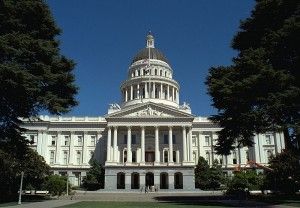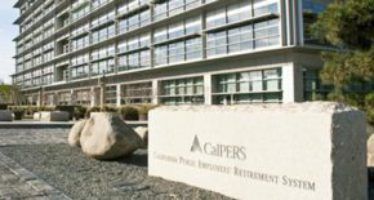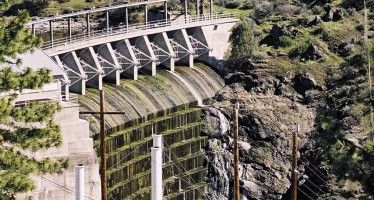The Bad Bill Mill, Part I
By KATY GRIMES
Talking about bad bills churning out of the state Capitol may seem as silly as critiquing the dining selections at a Denny’s. But it is a realistic discussion. California is experiencing a horrific financial crisis. The state doesn’t have the time or luxury right now for legislators to play around with costly, frivilous or special-interest bills.
But they are. The quality of the bills coming from the Legislature should be reflective of the state’s $50 billion deficit, the water crisis, energy crisis, high unemployment, pensions run amok, business closures and a widening gap between the public and private sectors.
Instead, many of the bills are pure garbage or reflect the narrow interests of the author. There are bills that are so obviously written by a special interest group and don’t reflect the vast problems the state faces.
What’s worse is that Democrats control the Legislature and have enough members to pass bad bills through the various legislative committees despite the loud objections of Republicans. And Gov. Jerry Brown appears to be in a signing mood for bad bills as well as bills vetoed by his predecessor, former Gov. Arnold Schwarzenegger, who vetoed many bad bills.
Here are a few of the worst bills from the Senate; all are by Democrats:
SB 568 is by Sen. Alan Lowenthal of Long Beach. It bans the use of polystyrene in the state as a container product in food service (though it exempts prisons for a claim of public safety). It could easily double the costs of containers in restaurants and state facilities, schools and hospitals. The bill was not identified as a fiscal bill or required to be heard in the Senate Appropriations committee, as previous iterations of the bill were.
Although it’s not in the background material or in any press releases, the author’s office acknowledges this is a cost driver. The latest amendment pushes back the date of implementation for schools until 2015, ostensibly to make sure that this cost is not realized in the current budget year or the next one. It’s a sly fiscal gimmick.
This bill will increase the cost of food packaging not only for the private sector, but for the government sector. There are so many other recycling opportunities for polystyrene, according to industry experts, and no real reason to ban the material.
SB 515 is by Senate Majority Leader Ellen Corbett of San Leandro and is called the “Household Battery Stewardship Program.” It would dramatically increase the cost of batteries in many products. It also would endanger much of the healthcare and biomedical community, increasing costs for their products.
According to some Capitol staff, this is one of the worst bills of the year. This bill creates another state bureaucracy with the Household Battery Stewardship Program as well as special accounts within the Integrated Waste Management fund. Retailers must prepare an annual plan and will be subject to the program’s imposition of an administrative civil penalty not to exceed $1,000 per day against a wholesaler or retailer that violates the code.
SB 730 is by Sen. Christine Kehoe of Del Mar. It would create the Alternative and Renewable Fuel and Vehicle Technology Program, to be administered by the State Energy Resources Conservation and Development Commission. It is supposed to speed up the process for permitting charging stations for electric cars.
This permitting speed-up could be done for all regulatory permitting. Instead, legislators only seem to do it for the politically correct kinds of technology. They ignore the evidence that:
* Electric cars are proving to be a boondoggle;
* Their power ultimately comes from fossil fuels;
* Their range decreases dramatically after purchase (and is even less in cold weather);
* There is no plan to deal with the batteries (the very expensive batteries with heavy metal components) after their useful life. See SB 515 (above) and multiply it by 10.
And there is a financing component. The bill stipulates:
The program shall provide, upon appropriation by the Legislature, competitive grants, revolving loans, loan guarantees, loans, or other appropriate funding measures, to public agencies, vehicle and technology entities, businesses and projects, public-private partnerships, workforce training partnerships and collaboratives, fleet owners, consumers, recreational boaters, and academic institutions to develop and deploy innovative technologies that transform California’s fueland vehicle types to help attain the state’s climate change policies.
There’s more pork larded in there than on a hog farm.
SB 394 by Sen. Mark DeSaulnier of Walnut Creek. By imposing more onerous regulations, the so-called Healthy Schools Act would further restrict the ability of school districts to protect their students from dangerous pests. Gov. Schwarzenegger vetoed the previous bill citing cost and mandate issues.
This is just an absurd bill, making me wonder if it is really just a shell for amendments to come at a later date. The bill would provide that only gels and pastes can be used for the treatment of pests (on bugs, not children). The bill would prohibit use of a pesticide on a school site if that pesticide contains an ingredient known to the state to cause cancer or reproductive toxicity.
The bill would also require all school sites to send at least one person to training at least once every three years. Because this provision would impose additional duties on local public employees, the bill would impose a state-mandated local program, creating additional job duties or a new job for school districts.
SB 237 is by Sen. Lois Wolk of Stockton. It would require that an unspecified percentage of funds generated from the state sale of emission credits under AB 32 must be used to fund activities that will reduce greenhouse gas emissions, or adapt to global warming, in the state’s agricultural sector. This would include funds from federal global warming programs.
The bill is sponsored by the California Climate & Agricultural Network. On its website, CalCAN states, “SB 237 will assure that future revenue generated by the state’s climate change law designated to agriculture will be spent on climate-friendly sustainable agriculture practices.”
CalCAN is a coalition of sustainable farming and agriculture organizations “seeking policy solutions to incentivize agricultural research and practice that have climate benefits,” its website states. Not only is this bad policy given the fact that the cap-and-trade regulations are not in place, and that there is a lawsuit on the whole scoping plan — but the bill is uncooked.
There are blanks in the bill, and yet it is already moving through the committees. If this was a Republican bill, it would be required to be ready. I wrote about this bill April 5 in “New Warming Bill Would Hit CA Farmers.”
SB 535 is by Sen. Kevin De Leon of Los Angeles. It would establish the California Climate Change Community Benefits Fund. And it would require a certain percentage of revenues generated for the state each year from the state sale of emission allowances under AB 32 to redistribute that money to communities with deep environmental justice pockets. De Leon is known as a legislator in search of a legacy — for which this vacuous bill would be apt.
SB 567 is by Sen. DeSaulnier. It guides the Legislature through another round of absurd prohibitions on plastic products which may or may not be considered “compostable,” “marine degradable,” “biodegradable,” “degradable” and “decomposable,” as designated by some bureaucrat. A city, county or the state may impose civil liability against someone who sells the bad plastic of $500 for the first violation, $1,000 for the second violation and $2,000 for the third and subsequent violations.
SB 623 is by Sen. Kehoe. It prohibits the manufacture, sale or distribution in commerce of marine antifouling paints that contain copper. More of the same bologna from her, after her dreaded SB 346 (2010), which sought to reduce the amount of copper in brake pads. This bill sounds more Soviet than progressive in nature.
SB 763 is by Sen. President Pro-Tem Darrell Steinberg of Sacramento. It would create the California Performance Plus Program to allow the state to give gold stars to green programs. This bill would specifically authorize the Secretary for Environmental Protection “to establish programs to recognize facilities and persons that have demonstrated a commitment to enhanced environmental performance, including at a minimum developing or initiating implementation of an environmental management system … everyone deserves a first-place ribbon.”
In another post, I highlight Assembly contributions to the Bad Bill Mill.
Related Articles
Finance Department urges CalPERS to reduce risk
The California Public Employees’ Retirement System is considering reducing its investment risk with a plan that would be so ineffectual
Pay soars in the public sector
Oct. 21, 2012 By Steven Greenhut STOCKTON — Workers for the city of Stockton who attended the unveiling Wednesday night
Brown: Klamath dam removal deal about “correcting mistakes”
KLAMATH – California, Oregon, the federal government and local interests have finally agreed to remove four dams along the Klamath





